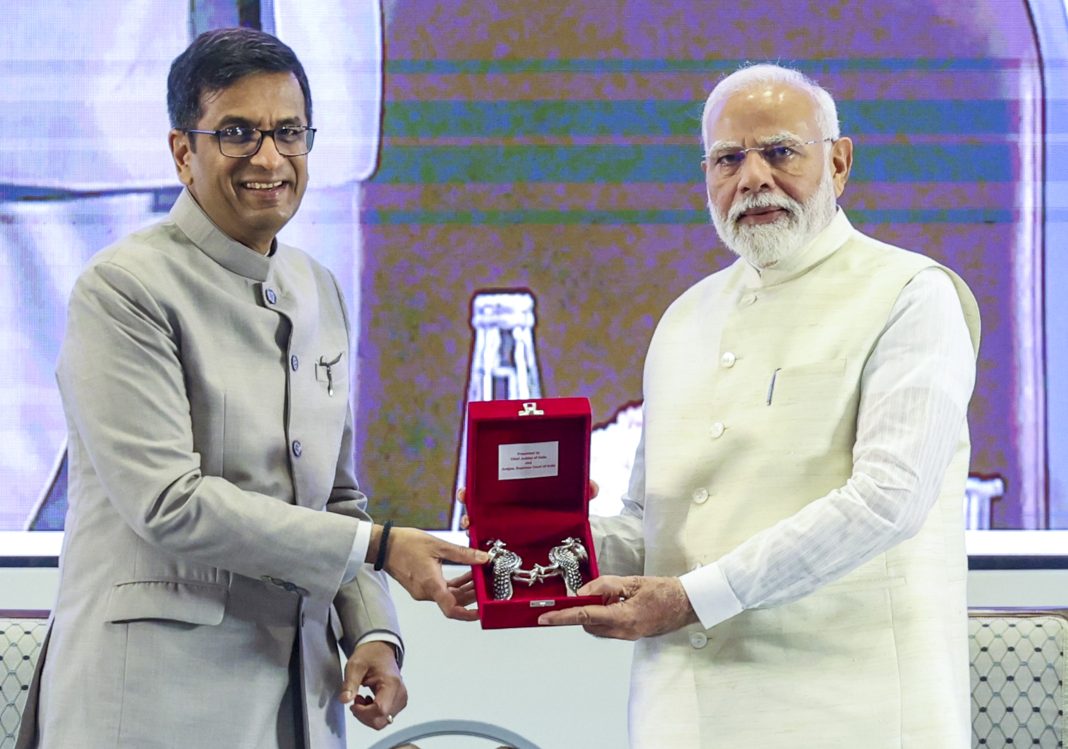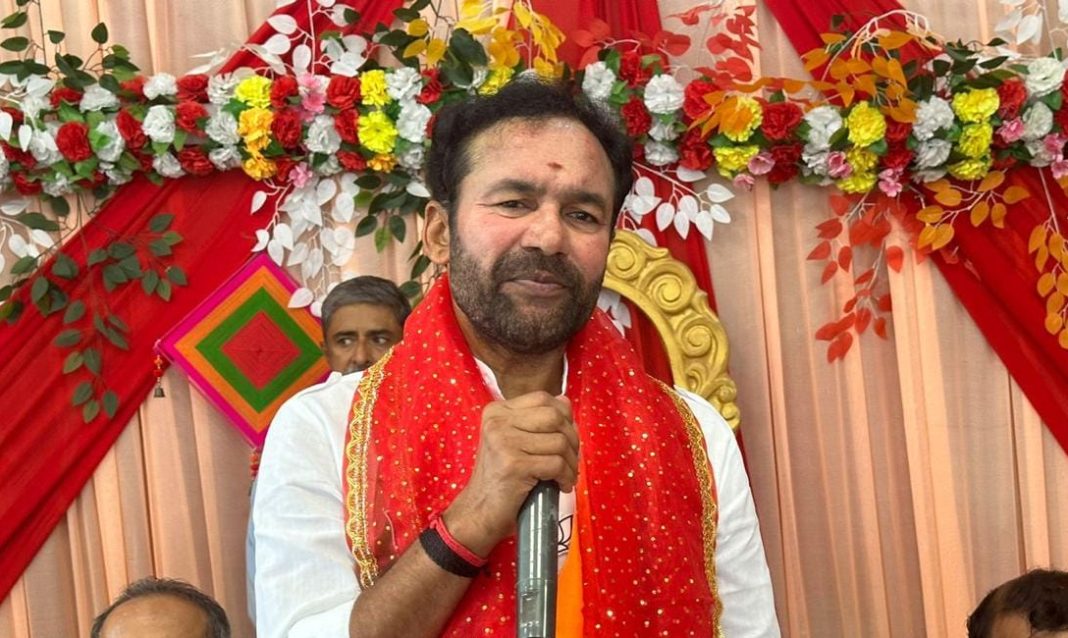New Delhi, Sep 1: Chief Justice of India (CJI) D Y Chandrachud on Saturday said district judiciary is the “backbone of the judiciary” and thus a crucial component of the rule of law and calling it subordinate must be stopped.
Referring to the increasing number of women joining the district judiciary in the past few years, he highlighted that judges, despite being professionals, are affected by their own “brush with reality” and their mental health may suffer as a consequence.
Speaking at the ‘National Conference of the District Judiciary’, which was inaugurated by Prime Minister Narendra Modi here, Justice Chandrachud said district judiciary is the first point of contact for a citizen in search of justice.
“The district judiciary is a crucial component of the rule of law,” he said, adding, “Data on the NJDG (National Judicial Data Grid) reveals a basic truth – the district judiciary is not just the first but is also the final point of contact for citizens”.
The CJI said the reasons may be numerous – many citizens are unable to afford legal representation, they have a lack of awareness about statutory rights, and there are geographical difficulties in physically accessing courts.
“The quality of our work and the conditions in which we provide justice to citizens determine whether they have confidence in us and is a test of our own accountability to society,” he said.
“The district judiciary is therefore called upon to shoulder tremendous responsibility and is aptly described as the ‘backbone of the judiciary’,” Justice Chandrachud said, adding, “The spine is the core of the nervous system. To sustain the spine of the legal system, we must stop calling the district judiciary the ‘subordinate’ judiciary”.
He said 75 years after independence, the time has come to bury one more relic of the British era – the colonial mindset of subordination.
Referring to the “multifarious responsibilities” of judges, the CJI said it was difficult for a judge not to be affected by the actual face of suffering that each of us encounters every day – a family which has faced a gruesome crime, an undertrial who is languishing for years or the children in a parental matrimonial dispute.
“Judges, despite being professionals, are affected by their own brush with reality. Their mental health may suffer as a consequence. This aspect is of great consequence but it unfortunately does not receive the attention that it merits,” he said.
Justice Chandrachud said as a step towards a more open discussion on the topic, the third session of the conference on Saturday was on judicial wellness, with a focus on holistic wellness, stress management, mental health, and quality of life.
Referring to the aspect of adoption of technology in the legal system, he said in 2023-24, 46.48 crore pages of court records have been scanned or digitised and 714 district court websites have been hosted on the S3waaS of the Government of India.
He said the NJDG is a mine of data not only for lawyers but also for citizens and it reflects real time data of over four crore cases across the district courts and the high courts.
The CJI said 970 e-sewa kendras were fully functional in district court complexes, besides 27 in the high court premises.
He said e-sewa kendras assist lawyers and litigants with e-processes by providing assistance for e-filing, providing information regarding the case status and so on.
“In so doing, these centres ensure that the digitization of the court process does not disadvantage common citizens in any way. They bridge the digital divide where it exists and reflect the principle animating citizen-centric services – ‘no person left behind’,” the CJI said.
He said e-courts project has been responsible for computerisation of over 3,500 court complexes and more than 22,000 court rooms.
“The district judiciary, has played a crucial role in deploying technology in day-to-day affairs: district courts in the country have heard 2.3 crore cases through video conferencing,” Justice Chandrachud said.
He said judgements of the Supreme Court were being translated in every language recognised by the Constitution and 73,000 translated verdicts were in the public realm.
Justice Chandrachud said merely purchasing technological devices was insufficient in the mission to ensure that courts were citizen-centric.
“Rather, we must embrace and implement technological processes by utilising the technology at our disposal and ensuring their full use in our work,” he said.
The CJI also spoke about data on the changing demography of judiciary.
“An increasing number of women have been joining the district judiciary in the past few years. Women consisted of 58 per cent of the total recruitment for civil judges in Rajasthan in 2023,” he said.
He said 66 per cent of judicial officers appointed in Delhi in 2023 were women while in Uttar Pradesh, 54 per cent of appointments for civil judge (junior division) in the batch of 2022 were women.
“In Kerala, 72 per cent of the total number of judicial officers are women in the latest recruitment. These are a few examples which paint the picture of a promising judiciary of the future,” Justice Chandrachud said.
Besides the CJI, Modi, Union Law Minister Arjun Ram Meghwal, Supreme Court judge Sanjiv Khanna, Attorney General R Venkataramani, Supreme Court Bar Association president Kapil Sibal and Bar Council of India chairman Manan Kumar Mishra also addressed the gathering.
The two-day function is being organised by the Supreme Court.




